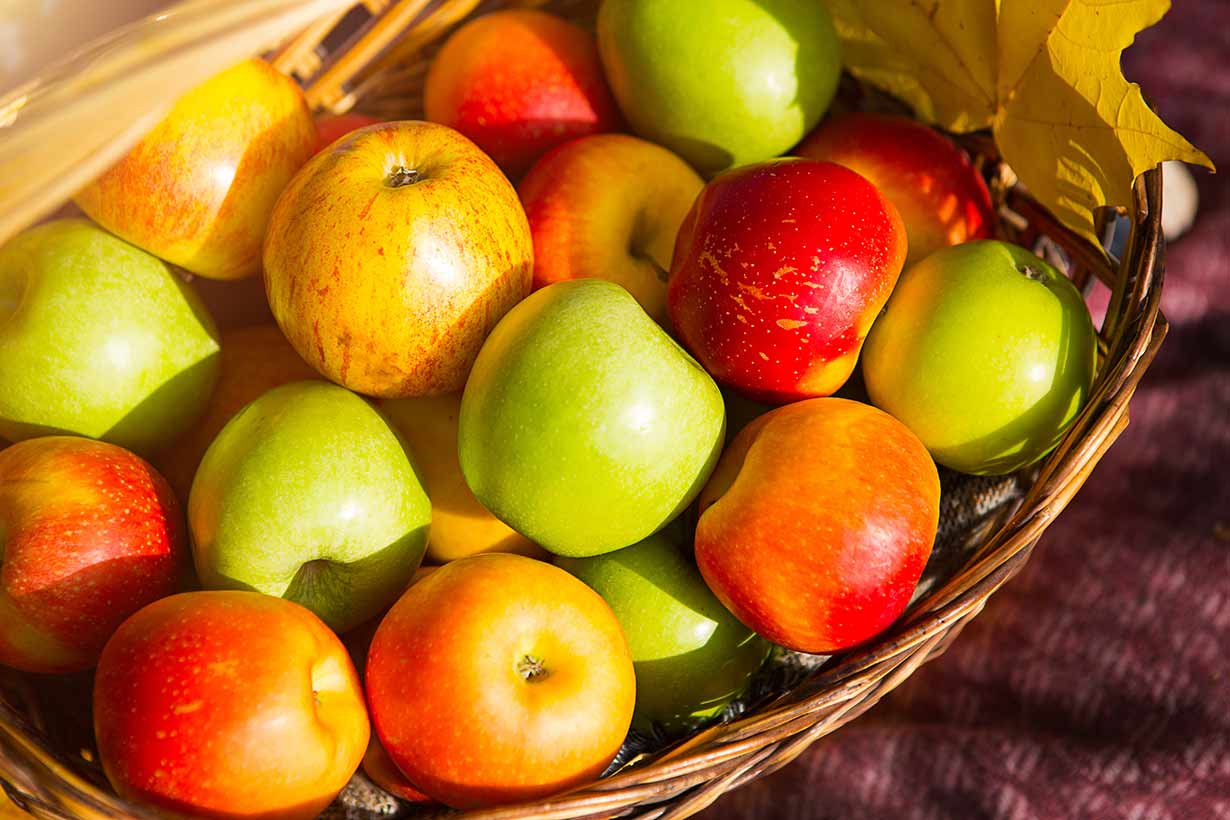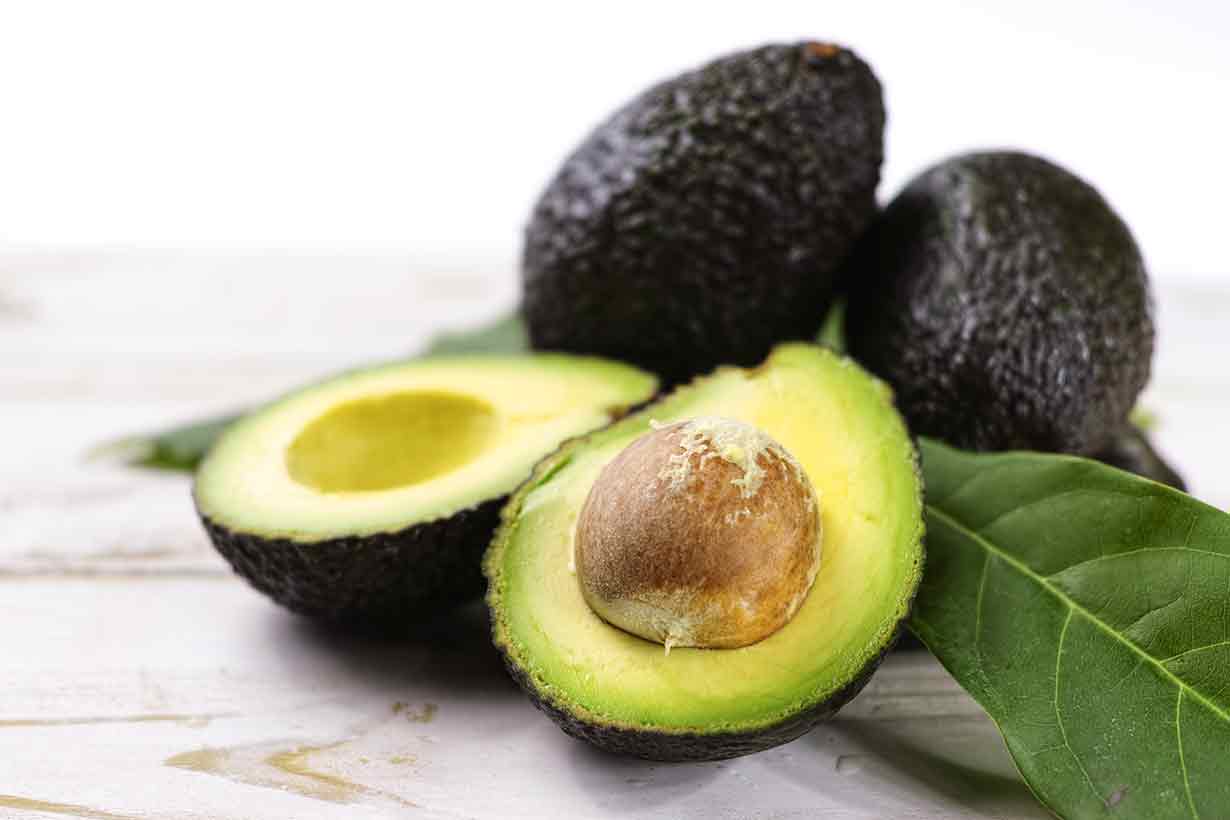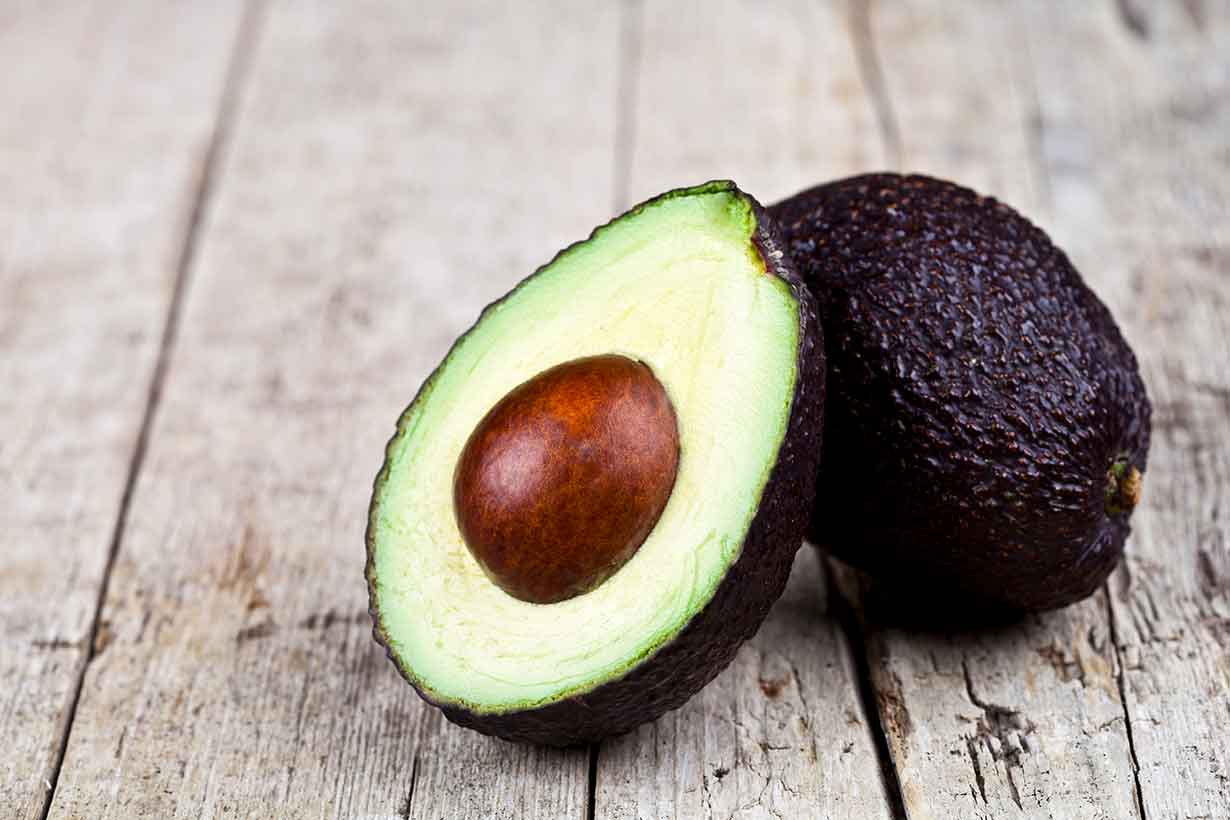The majority of people view fruit as a healthy choice of food that provides a range of vitamins and minerals.
However, it is not uncommon to hear claims that fruit sugars can play a contributory role in weight gain.
Although fruit is relatively low in calories, most of the energy that fruit provides comes from the sugar it contains.
Since sugar intake is often linked with weight gain and obesity, some people assert that fruit—as a source of that sugar—can be fattening too.
Is there any truth to these claims?
This article takes an in-depth look into this topic and examines what the scientific evidence says.
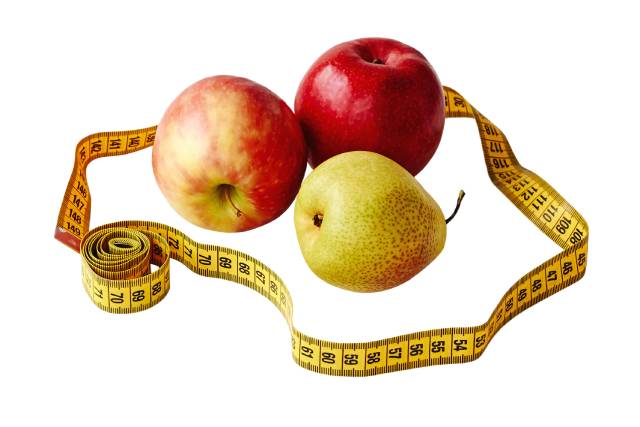
Can Fruit Consumption Lead To Weight Gain?
First of all, there is no denying that fruit could lead to weight gain in sufficient quantities.
However, this does not mean there is anything uniquely fattening about fruit.
In an overall dietary pattern that features excessive calories, carbohydrates, and fat, weight gain is the natural result of that diet.
In other words, anything can cause weight gain.
If we over-consume food, then increases in body mass will follow – whether that extra food is fruit, candy, red meat, or even fish.
That said, to thoroughly examine the evidence behind these claims about fruit, we will now look at research on:
- How much fruit people are eating and food intake trends
- Observational studies looking at fruit intake and weight
- The effect of fruit on appetite and satiety
- Experimental human trials on fruit intake and weight outcomes
How Much Fruit Does the Average Person Eat?
Based on data from the Food and Agriculture Organization of the United Nations (FAO), the following table shows how the average energy (calorie) intake changed between 1961 and 2013 by geographical region (1, 2):
| Continent | Energy Intake (1961) | Energy Intake (2013) |
|---|---|---|
| Africa | 1,993 kcal | 2,624 kcal |
| Asia | 1,805 kcal | 2,779 kcal |
| Europe | 3,041 kcal | 3,367 kcal |
| North America | 2,873 kcal | 3,663 kcal |
| Oceania | 3,021 kcal | 3,216 kcal |
| South America | 2,329 kcal | 3,027 kcal |
| World | 2,196 kcal | 2,884 kcal |
As the table shows, the average calorie intake has jumped, on average, by 688 calories per person, per day around the world.
In North America, people are now eating an additional 790 calories per day.
Over a similar period —1975 to 2016—data from the World Health Organization (WHO) demonstrates that the incidence of obesity has tripled around the world (3).
How much of this energy intake comes from fruit consumption?
Further FAO data shows the average fruit intake (grams) per person per day during 2013 in the following regions (4, 5):
- Asia: 219 g
- Africa: 181 g
- Europe: 260 g
- North America: 295 g
- Oceania: 243 g
- South America: 264 g
- World: 213 g
In short, the average fruit intake in the Western world is approximately 250-300 grams per day.
According to dietary intake data gathered by the United States Department of Agriculture in 2010, the average American (accounting for all ages) consumed 81 calories from fruit per day (6).
In contrast, the combined calorie intake from added fats and added sugars stood at 934 calories.
If we wish to blame one specific food group for the current obesity crisis, then based on these data, we shouldn’t be looking at fruit.
Fruit Appears To Be Associated With Weight Loss
Nutritional epidemiology cannot always conclusively prove something, but observational studies can be very useful for identifying trends.
In the case of fruit consumption, numerous large observational trials point toward fruit trending with a lower risk of becoming overweight.
One study tracked 18,146 women over the age of 45 for a mean follow-up of 15.9 years. In these women, higher fruit intake was strongly associated with a lower risk of becoming overweight over the follow-up period. This association was only for fruit, and there were no similar trends for either vegetable or fiber intake (7).
Additionally, an analysis of three extensive prospective cohort studies investigated the impact of fruit consumption in American men and women. This analysis showed a clear inverse association between fruit and weight gain over four years. The association remained for numerous individual types of fruit, as well as total fruit consumption (8).
Furthermore, a recent systematic review of the relevant evidence identified eleven prospective observational studies that analyzed diet in relation to changes in body weight over time. Among these eleven studies, ten demonstrated that people with a greater fruit intake gained less (or lost more) weight than people who consumed less fruit (9).
The limitations of epidemiology
As is always the case with epidemiology, these studies cannot confirm that higher fruit intake results in better weight regulation.
For example, there is also the possibility that people who eat more fruit are more health-conscious and have a greater number of health-promoting habits. It may be that people eating the highest amount of fruit are more likely to exercise and follow a beneficial sleep routine.
However, the existence of potential confounders does not mean we should dismiss what these studies show. The bulk of the observational evidence suggests that greater fruit intake is associated with better weight-related outcomes.
Fruit May Help To Reduce Appetite
Another important consideration is how specific foods affect feelings of satiety and appetite regulation.
For example, according to the satiety index of common foods, whole foods—including fruit, vegetables, meat, and fish—are the most satiating. In other words, these types of foods increase subjective feelings of fullness and discourage further eating (10).
Research in this area consistently demonstrates that food volume is also important. For instance, studies show that whole apples increase satiety and reduce subsequent calorie intake compared to fruit juice, apple sauce, and even fiber-matched apple juice (11).
A recent review of six randomized controlled trials and experimental studies on fruit consumption looked into this topic further. The review found that compared to liquid or pureed fruit, whole fruit in solid form (12):
- Has a more significant effect on satiety
- Substantially decreases subsequent energy intake
In another relevant trial, researchers compared the effects of a serving of berries to a calorie-matched confectionary snack.
Interestingly, the participants that had the berries consumed 133 fewer calories than the confectionary group during a pasta-based dinner 60 minutes later. With this meal, the participants could voluntarily stop eating at the point they felt satisfied (13).
The conclusion here is that replacing nutritionally poor food with a snack of fresh fruit may lower subsequent food intake, and thereby decrease overall energy/calorie intake.
Fruit Does Not Promote Weight Gain In Randomized Controlled Trials
While observational research can only infer correlation rather than causation, the same is not true for experimental trials.
Fortunately, several randomized controlled trials demonstrate how fruit intake affects weight outcomes in human participants.
A low-fructose diet versus a moderate natural fructose diet on weight loss
A randomized controlled trial featured two intervention diets; one diet was high in whole fruit (equal to 50-70 grams per day of fructose), and the other was a low-fructose diet (<20 g/d). Both of these intervention diets were energy-restricted.
Although both diets resulted in weight loss over six weeks, the diet that contained moderate amounts of natural fructose resulted in significantly higher weight loss.
To be specific, the participants in the low-fructose diet lost an average of 2.83 kg of weight, while the moderate natural fructose group lost 4.19 kg (14).
The effect of grapefruit on weight and insulin resistance
In a further randomized controlled trial, 91 obese participants were either randomized to one of the following groups (15):
- Placebo capsules with apple juice
- Grapefruit capsules and apple juice
- Placebo capsules and grapefruit juice
- Placebo capsules and half of a fresh grapefruit
Participants were asked to consume the above treatment three times per day before each meal.
Interestingly, over 12 weeks, the fresh grapefruit group lost the most weight (1.6 kg). In contrast, the placebo capsules with apple juice group only lost 0.3 kg of weight.
While the researchers were uncertain of why the fresh grapefruit caused more significant weight loss, it could potentially be related to appetite regulation and reduced subsequent calorie intake.
A randomized study of the effects of additional fruit and nuts consumption
An interesting randomized controlled trial tested the effects of adding either of the following foods to the diet of thirty healthy participants (16):
- Seven calories of fruit per kg of body weight
- Seven calories of nuts per kg of body weight
For an individual weighing 70 kilograms, this would be approximately 490 extra calories per day.
While participants in both groups gained weight, this weight gain was only statistically significant in the nut group.
Furthermore, only the participants in the nut group reported a net increase in calorie intake. This finding suggests that participants in the fruit group reduced overall food intake in response to the extra fruit, while the participants in the nut group did not.
Fruit Isn’t Just Sugar/Fructose
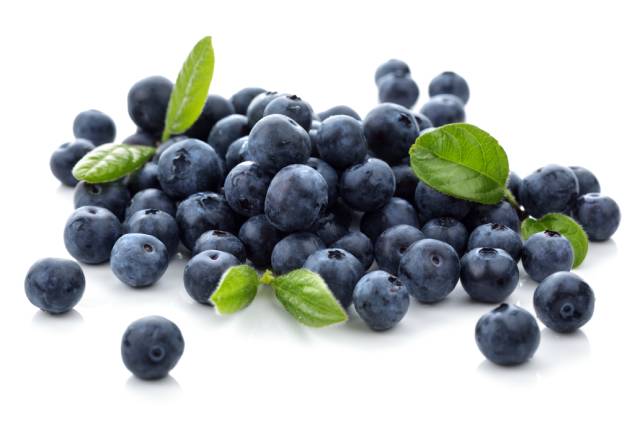
It is true that the fructose in fruit is chemically no different from pure fructose. It is also true that excessive fructose intake may potentially have adverse health effects (17, 18).
However, using fruit sugars to portray fruit in a negative light is highly misleading.
First, fruits are not just fructose, and they also provide:
- Small amounts of fat and protein
- Fiber
- Phytonutrients (such as polyphenols)
- Water
- Various vitamins and minerals
The vitamins and minerals present in fruit all have a positive effect and contribute to the human body’s nutritional requirements (18, 19).
Several randomized controlled trials also suggest that polyphenols found in fruit may have beneficial effects, such as improving endothelial function, which can be protective against cardiovascular disease (20, 21).
These compounds range from anthocyanins in berries and cherries to flavones in citrus fruits like kumquat, lemons, and oranges. However, more research is necessary to fully understand the purported beneficial role phytonutrients may have (22).
Lastly, despite containing sugar, many whole fruits are low on the glycemic index (23).
Whole Fruit Beats Juice and Dried Fruit
Finally, it is important to consider the definition of fruit, and how the effects of fruit prepared in different ways can differ.
First, all fruit products—whether fresh, dried, frozen, or served as fruit juice—will always be a good source of vitamins and minerals.
However, research suggests that whole fruit may be more beneficial in several different ways.
For example, trials in this area have demonstrated that solid, whole fruit has a greater effect on satiety (11).
It is also possible that whole fruit may improve blood lipids (cholesterol) compared to juice, likely due to the fiber content (24).
Eating a piece of whole fruit is quite filling, but dried fruit and juice offer larger energy sources for much less volume, making them easier to over-consume.
Final Thoughts: Is Fruit Fattening?
The vast majority of research does not support the idea that fruit is fattening.
From data on food and fruit intake trends to epidemiology and randomized controlled trials, the data rejects the idea that fruit contributes to weight gain.
Conversely, the trends show that fruit intake may potentially have a beneficial role in supporting weight regulation.
That said, this conclusion does not mean that fruit cannot contribute to weight gain.
If people are consuming an excessive amount of food and their diet includes large amounts of fruit, then this could potentially be an issue.
However, there does not seem to be anything about fruit that specifically contributes to weight gain.




